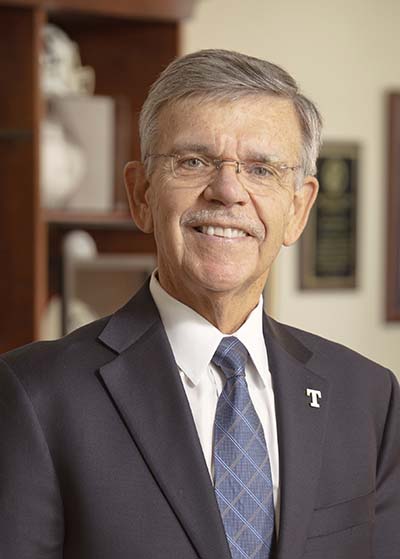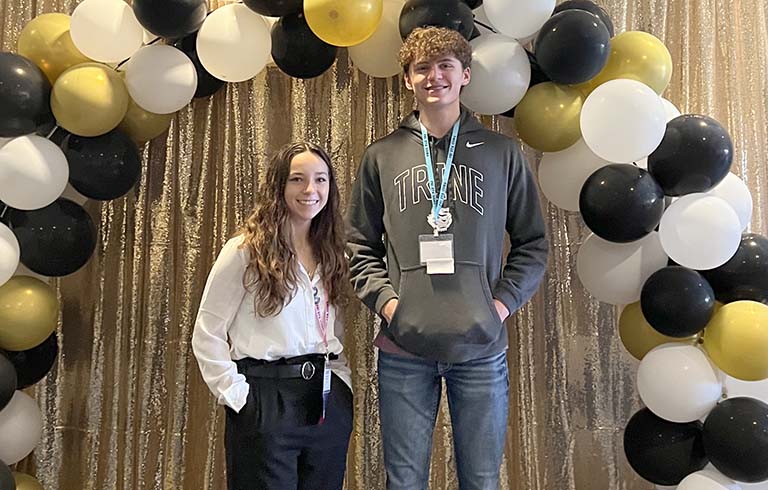By Earl D. Brooks II, Ph.D.
 With higher education costs rising since the turn of the century, some question whether
a college degree has the value it once did. In a recent Gallup poll, only 36% of adults
expressed confidence in higher education.
With higher education costs rising since the turn of the century, some question whether
a college degree has the value it once did. In a recent Gallup poll, only 36% of adults
expressed confidence in higher education.
However, a quick look over the data confirms there is still great value in higher
education.
The most recent reports from the U.S. Bureau of Labor Statistics (BLS) show that,
on average, those ages 25 and older who hold a bachelor’s degree continue earning
just over $30,000 each year more than their counterparts who only have a high school
diploma. This gap widens at an institution like Trine, where many students graduate
with degrees in high-paying fields like healthcare and engineering, and many of our
graduates earn above the national average in their field.
This economic impact is further magnified when you consider its impact over the 40
years or more of a typical career.
College graduates also continue to enjoy higher employment rates than their peers
and are more likely to hold positions that include benefits such as health insurance
and a retirement plan. More than 99% of our Trine alumni are employed or in graduate
school within six months of graduation.
These trends don’t seem to show any signs of changing. The BLS’s most recent Occupational
Outlook Handbook predicts that two-thirds of the nation’s 30 fastest-growing occupations
through 2032 will require a bachelor’s degree. A new report by the Georgetown University
Center on Education and the Workforce predicts that by 2031 only 20% of good jobs,
defined as those paying at least $43,000 a year, will be available to those with education
less than a bachelor’s degree.
Employers also recognize the value of a college degree.
In a recent survey conducted by the American Association of Colleges and Universities,
87 percent of employers responded that earning a college degree or credential is “definitely”
or “probably” worth the money and time. No doubt some of this stems from continuing
efforts of Trine University and other institutions to provide programming that equips
our graduates with the skills needed in business and industry.
The benefits of a college experience extend well beyond a graduate’s bank account.
Studies have shown college graduates enjoy longer marriages and more friendships than
those with less education. As a result of these and other factors, the average college
graduate is expected to live seven years longer than his or her peer with less education.
These benefits are magnified for students who go on to earn master’s and doctoral
degrees. And they impact far more than just the individual graduate.
Higher incomes allow college graduates to spend more and pay more in taxes, providing
a boost to the local economies where they reside. This, in turn, helps attract more
business investment to these communities.
College graduates are also more likely to volunteer in their communities, exercise
their right to vote, and be an active part of community service organizations. They
are more likely to be employed at not-for-profit organizations, and on average donate
more to charity than those with less education.
The cost of higher education, like the cost of everything in the current environment,
will continue to be a concern. At Trine University, we are continuing to do everything
we can to keep costs in check, from holding the line on expenses to encouraging donors
to support scholarships for deserving students, with 99% of our student body receiving
financial aid.
But for those students who complete their degree, the return is well worth the investment.
Earl D. Brooks II, Ph.D., is president of Trine University in Angola, Indiana.

 With higher education costs rising since the turn of the century, some question whether
a college degree has the value it once did. In a recent Gallup poll, only 36% of adults
expressed confidence in higher education.
With higher education costs rising since the turn of the century, some question whether
a college degree has the value it once did. In a recent Gallup poll, only 36% of adults
expressed confidence in higher education.
